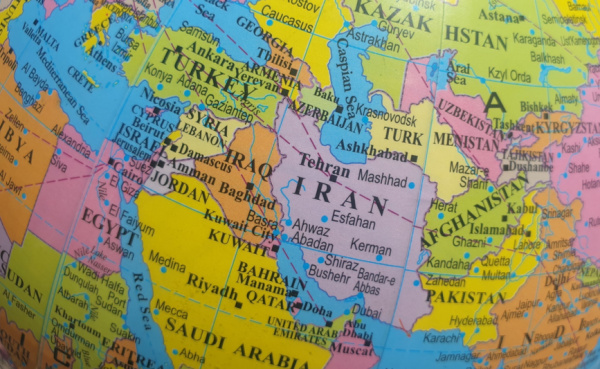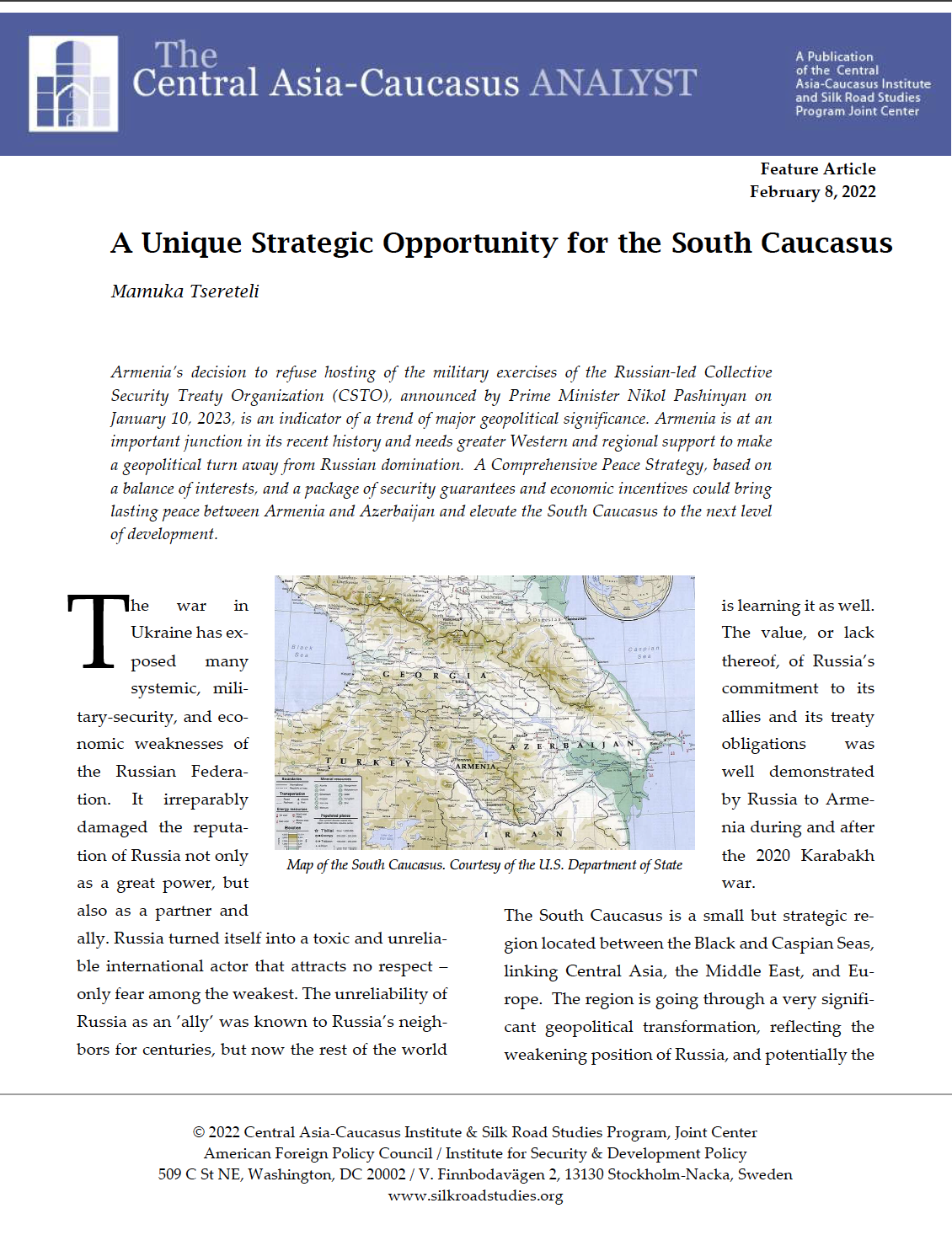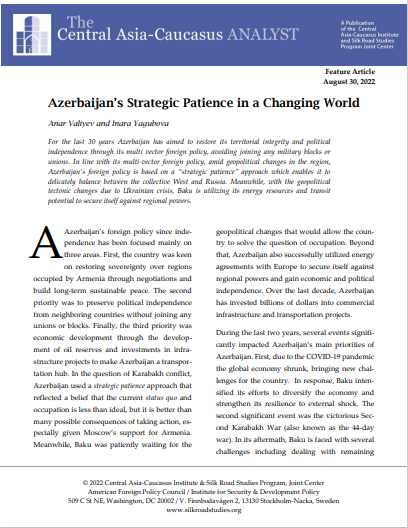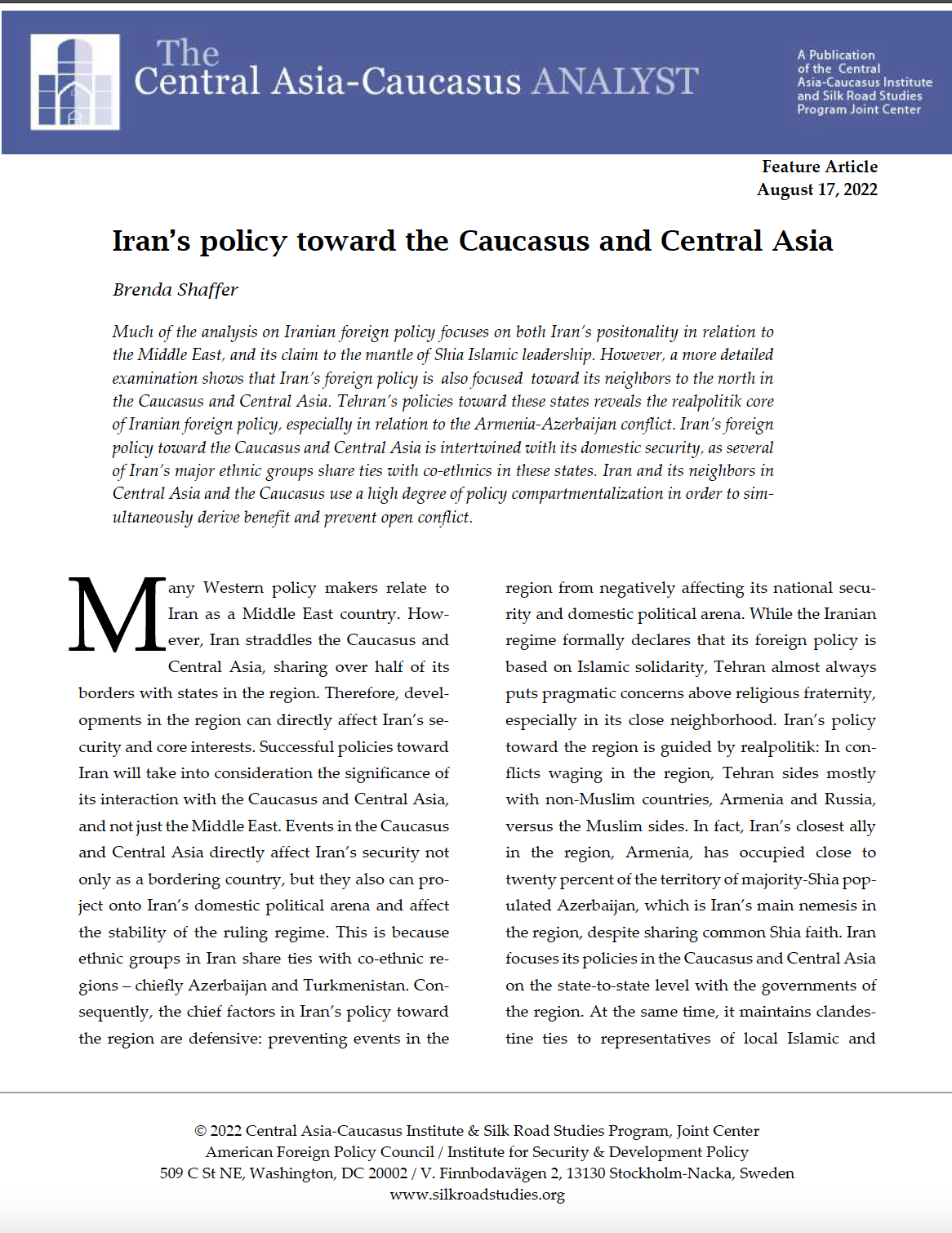Russia and Iran Diverge in the South Caucasus
By Vali Kaleji
June 15, 2023
Despite some similarities in Iran’s and Russia’s approaches towards the conflict between Armenia and Azerbaijan since the collapse of the Soviet Union, Tehran and Moscow have diverged in recent years regarding the Zangezur Corridor, its possible effects for Iran’s border with Armenia, and Israel’s relations with Azerbaijan. Russia’s relations with Israel and its need to retain economic ties and transit options with Azerbaijan and Turkey after the Ukraine war, have led Moscow to take a flexible approach to developments in the South Caucasus, which is not favorable to Iran. This has disrupted the unwritten alliance between Iran, Armenia and Russia and has created a security and strategic dilemma for Iran along its northwestern borders.

A Unique Strategic Opportunity for the South Caucasus
By Mamuka Tsereteli
February 8, 2022
Armenia’s decision to refuse hosting of the military exercises of the Russian-led Collective Security Treaty Organization (CSTO), announced by Prime Minister Nikol Pashinyan on January 10, 2023, is an indicator of a trend of major geopolitical significance. Armenia is at an important junction in its recent history and needs greater Western and regional support to make a geopolitical turn away from Russian domination. A Comprehensive Peace Strategy, based on a balance of interests, and a package of security guarantees and economic incentives could bring lasting peace between Armenia and Azerbaijan and elevate the South Caucasus to the next level of development.
Russia Pressures Armenia to Join a Revamped Union State
By Stephen Blank
February 7, 2023
At the end of 2022 Armen Grigoryan, Secretary of Armenia’s Security Council, announced on television that Armenia is under strong pressure, presumably from Moscow, to join the union state of Russia and Belarus and open an “extraterritorial (trade) corridor” to Azerbaijan’s Nakhichevan province through its own Syunik province. While Armenia’s acute security predicament provides an opportunity for this Russian move, the question is why Moscow has chosen this particular timing and what it portends for the future of the Caucasus.

Azerbaijan’s Strategic Patience in a Changing World
By Anar Valiyev and Inara Yagubova
August 30, 2022
For the last 30 years Azerbaijan has aimed to restore its territorial integrity and political independence through its multi vector foreign policy, avoiding joining any military blocks or unions. In line with its multi-vector foreign policy, amid geopolitical changes in the region, Azerbaijan’s foreign policy is based on a “strategic patience” approach which enables it to delicately balance between the collective West and Russia. Meanwhile, with the geopolitical tectonic changes due to Ukrainian crisis, Baku is utilizing its energy resources and transit potential to secure itself against regional powers.
Iran’s policy toward the Caucasus and Central Asia
By Brenda Shaffer
August 17, 2022
Much of the analysis on Iranian foreign policy focuses on both Iran’s positonality in relation to the Middle East, and its claim to the mantle of Shia Islamic leadership. However, a more detailed examination shows that Iran’s foreign policy is also focused toward its neighbors to the north in the Caucasus and Central Asia. Tehran’s policies toward these states reveals the realpolitik core of Iranian foreign policy, especially in relation to the Armenia-Azerbaijan conflict. Iran’s foreign policy toward the Caucasus and Central Asia is intertwined with its domestic security, as several of Iran’s major ethnic groups share ties with co-ethnics in these states. Iran and its neighbors in Central Asia and the Caucasus use a high degree of policy compartmentalization in order to simultaneously derive benefit and prevent open conflict.





